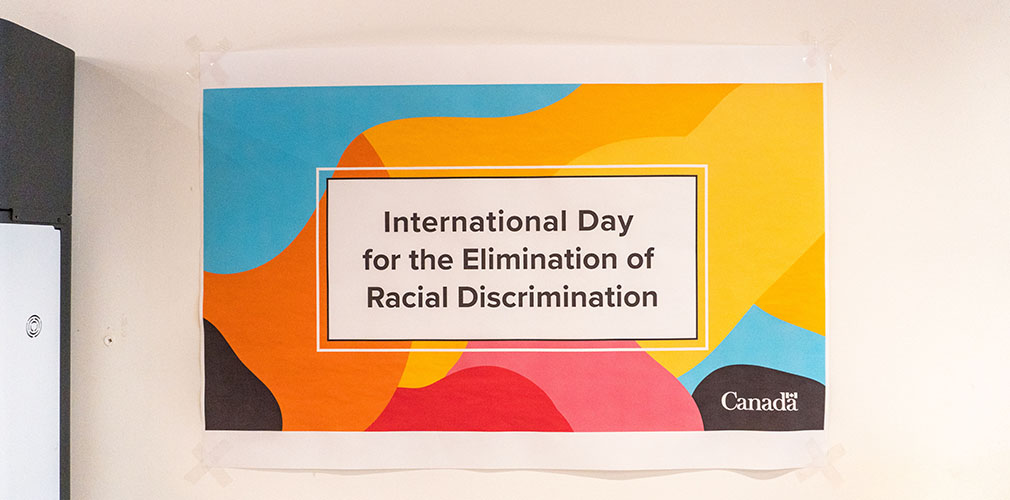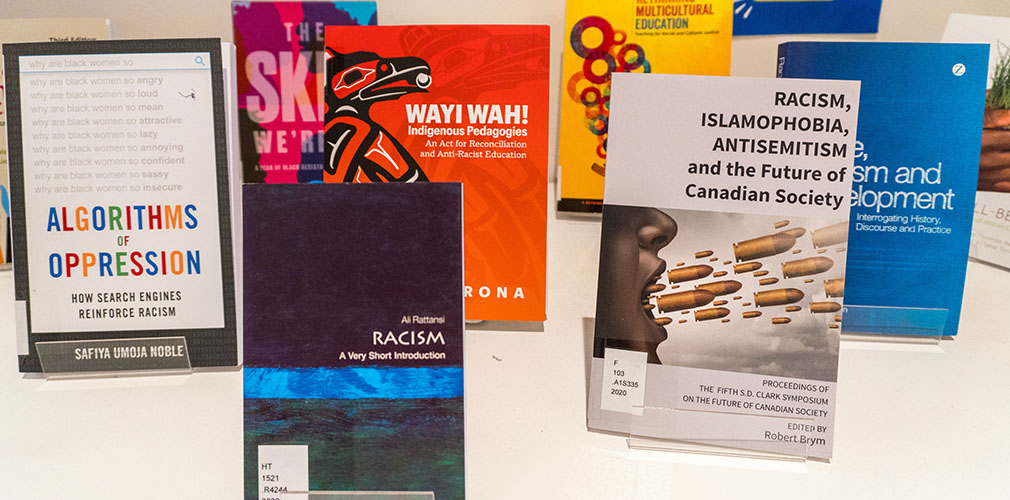

In Canada, March 21 is commemorated as International Day for the Elimination of Racial Discrimination. March 21 is significant because it commemorates the day police in Sharpeville, South Africa, shot and killed 69 people at a peaceful demonstration against apartheid in 1960.
Apartheid in South Africa was a system of racial segregation, which means that the different racial groups were not allowed to cooperate with each other, and people were treated unequally due to their group. Although apartheid is no longer in effect in South Africa, there are still economic and social effects that continue to exist, such as economic inequality.

Why should Canada observe the International Day for the Elimination of Racial Discrimination? After all, we have never had anything as bad as apartheid in our history, have we? Or have we?
The International Day for the Elimination of Racial Discrimination invites us to consider our history and how that history may have legacies that impact the present.
For example, consider the Residential School system, in which thousands of Indigenous people were forcibly removed from their families and sent to schools aimed at destroying their culture. The schools are infamous for the abuses that occurred, ranging from physical, sexual, mental, and spiritual abuses.
Today, because of the Residential School system, many Indigenous people suffer mentally, including relatives of people who went to the schools (intergenerational trauma).
Other examples of racism in Canadian history include the Chinese Head Tax as well as the Komagata Maru incident. We must learn from the past, and this special day is time to reflect.

Combatting racism requires action on the part of all of us. It requires standing up when a friend or classmate makes a racist joke. It requires speaking and listening in tough conversations. Most importantly, it requires keeping an open and empathetic mind. The government of Canada suggests following the BRAVE framework:
The build, respect, acknowledge, validate and emphasize (BRAVE) framework is a useful tool that provides strategies to explore when having courageous conversations.
Check out the Government of Canada’s anti-racism toolkit.
Visit the Library and explore our texts related to anti-racism and BIPOC (Black, Indigenous, People of Colour) topics!

Alexander College acknowledges that the land on which we usually gather is the traditional, ancestral and unceded territory of the Coast Salish peoples, including the territories of the xʷməθkwəy̓əm (Musqueam), Skwxwú7mesh (Squamish), and Səl̓ílwətaʔ/Selilwitulh (Tsleil-Waututh) Nations. We are grateful to have the opportunity to work in this territory.
Alexander College acknowledges that the land on which we usually gather is the traditional, ancestral and unceded territory of the Coast Salish peoples, including the territories of the xʷməθkwəy̓əm (Musqueam), Skwxwú7mesh (Squamish), and Səl̓ílwətaʔ/Selilwitulh (Tsleil-Waututh) Nations. We are grateful to have the opportunity to work in this territory.